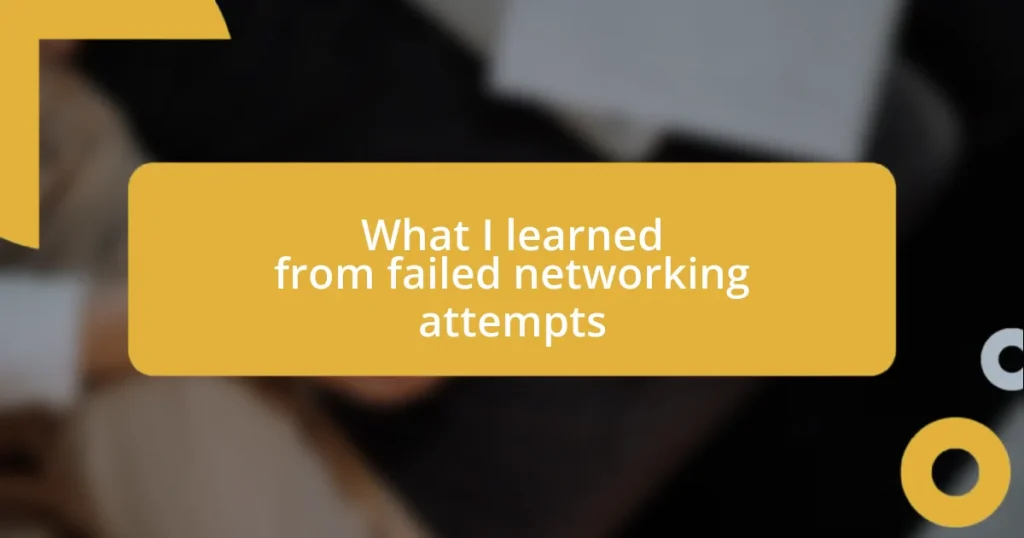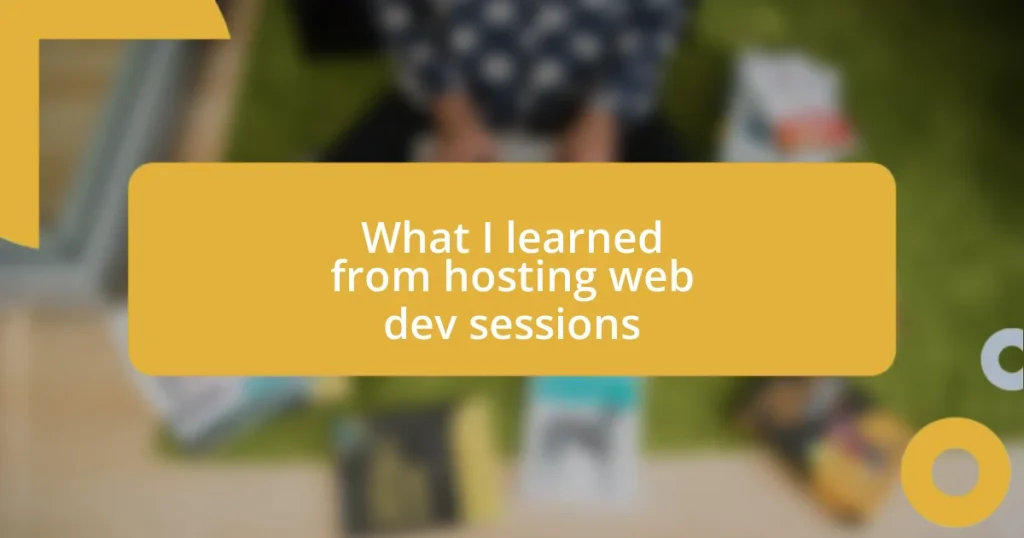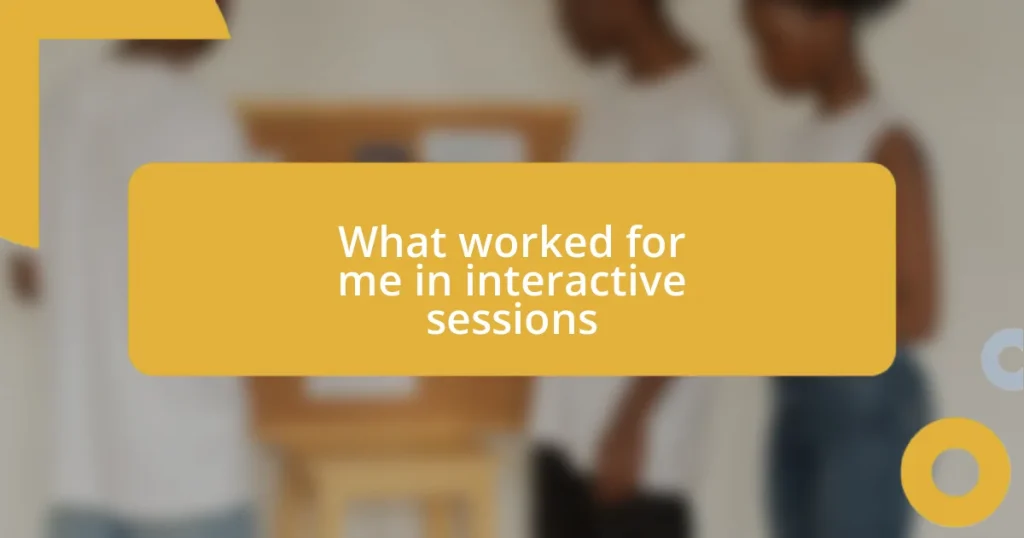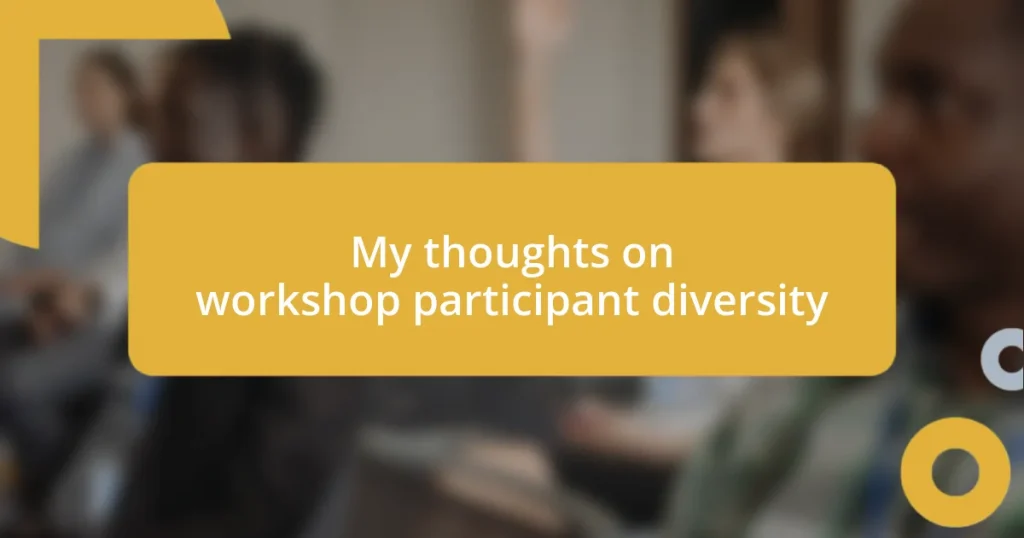Key takeaways:
- Networking is about building genuine relationships that can lead to mentorship and unexpected opportunities, rather than a transactional approach.
- Learning from networking failures, such as rejection and awkward interactions, can refine your strategy and foster resilience in building connections.
- Preparation, focus on quality over quantity, and timely follow-ups significantly enhance networking effectiveness and the potential for meaningful relationships.

Understanding the value of networking
Networking is more than just exchanging business cards; it’s about forming relationships that can elevate your career or personal growth. I remember attending a conference where I felt completely lost in a sea of faces. But striking up a conversation with one attendee led to a pivotal mentorship that shaped my professional path. Isn’t it fascinating how one connection can open doors you never even knew existed?
Building a network enriches our perspectives and fosters collaboration. There was a time when I hesitated to reach out to colleagues, fearing rejection. But when I finally connected with someone in a different field, we discovered common ground that not only inspired new ideas but also forged a friendship. Doesn’t it make you think about the potential opportunities just waiting beyond that initial nervousness?
The true value of networking lies in the unexpected gifts it can yield. I’ve experienced moments where a casual chat transformed into a collaboration that significantly impacted my project’s success. It’s this unpredictability that makes networking both thrilling and essential. What if each conversation you have could lead to a breakthrough? Each interaction is a chance to learn something new or share insight that could inspire someone else—how can you afford to miss out on that?

Identifying common networking mistakes
Networking has its pitfalls, and recognizing common mistakes can truly make a difference. One major blunder I’ve noticed is approaching networking with a purely transactional mindset. Early in my career, I often viewed connections merely as stepping stones for my ambitions. This attitude not only hindered genuine conversations but also made people feel like they were being used. Instead, I’ve learned that sincere interest in others lays the foundation for meaningful relationships.
Here are some common networking mistakes to watch out for:
- Failing to follow up after initial meetings, which can make you forgettable.
- Talking too much about yourself without asking about others’ experiences.
- Attending events without a clear intent or goal, leaving you feeling directionless.
- Neglecting to leverage social media platforms for ongoing engagement.
- Being unprepared with questions or topics to discuss when meeting new contacts.
Each of these mistakes reinforces the need for genuine connections, which I now prioritize. I vividly recall a time when I simply listened to someone’s story at an event, rather than impressing them with my own achievements. That one moment opened up a rich dialogue, and we ended up collaborating on a project that exceeded both our expectations. It reminded me that every conversation is more fruitful when it’s rooted in mutual respect and curiosity.

Analyzing the impact of failure
Understanding the impact of failure in networking can be a transformative experience. I once attended an event where I awkwardly exchanged pleasantries but left feeling deflated because no substantial connections emerged. This failure didn’t just sting; it forced me to reflect on my approach. I learned that it’s essential to view each misstep as a stepping stone toward improvement, rather than a dead end. The sense of disappointment can drive you to tweak your strategy, leading to richer engagements in the future.
When analyzing failed networking attempts, I realized they often highlight what didn’t resonate with others. A vivid memory comes to mind from a workshop where I overly focused on selling myself instead of listening. The disinterest in the other person’s response was palpable. This experience taught me the power of active listening—asking questions and being genuinely curious about others can transform your networking game. It was a wake-up call that helped me reframe my mindset from “what can I get” to “what can we share.”
Lastly, the emotional landscape of networking failures can be daunting. After a particularly unproductive meetup, I found myself doubting my abilities. However, that moment of vulnerability sparked change. I began seeking feedback from trusted peers, discovering that many faced similar challenges. Embracing the fact that failure is part of the journey allowed me to build resilience. From these reflections, I now view every failed attempt not as a setback but as an invitation to grow.
| Type of Failure | Emotional Impact |
|---|---|
| Awkward Conversations | Frustration, Self-Doubt |
| Missed Connections | Disappointment, Reflection |
| Selling Yourself Too Hard | Embarrassment, Motivation to Change |

Learning from rejection experiences
Reflecting on rejection experiences has been eye-opening for me. I remember attending a dinner where I made an effort to connect with someone I admired, only to be met with indifference. At that moment, I felt like my worth was being diminished, but later, I realized it was just part of the networking process. This taught me that not every interaction will be fruitful, and that’s okay. The key takeaway? Rejection can be an opportunity to refine your approach.
There was another occasion when my pitch to a potential collaborator fell flat. The silence that followed was almost deafening. I remember thinking, “What did I do wrong?” Rather than dwelling on it, I decided to reach out for feedback. This conversation revealed that my delivery lacked enthusiasm and focus. Since then, I’ve made it a point to convey passion and clarity in every interaction. Each rejection has, in its own way, nudged me towards improvement.
It can be disheartening to face rejection repeatedly, but I’ve come to value this discomfort. I often ask myself, “How can this experience fuel my growth?” Embracing rejection as part of my journey has enriched my networking. It reminds me that success isn’t solely defined by positive outcomes, but also by the resilience cultivated through setbacks. Each refusal has spurred me to adapt and evolve, ultimately leading to more authentic connections.

Strategies to improve networking
When it comes to improving networking strategies, I’ve found that preparation can make all the difference. I once walked into a networking event with no clear goal in mind, and it felt like wandering through a fog. After that, I started creating a list of specific people I wanted to connect with, along with a few tailored questions or topics to discuss. This not only eased my anxiety but also made my conversations more meaningful. Have you ever felt unprepared and that it cost you an opportunity? That feeling is one I don’t want to experience again.
Another strategy that transformed my approach is to focus on quality over quantity. At a recent conference, I set myself a goal to engage deeply with just three people instead of trying to meet everyone in the room. By dedicating time to these interactions, I was able to share insights and truly understand their backgrounds and interests. It was a game changer! Isn’t it refreshing to have a conversation that feels like a real exchange rather than a transactional meeting?
Furthermore, I’ve realized the power of follow-ups. After a meaningful conversation, I would sometimes let too much time pass before reconnecting. Now, if I meet someone intriguing, I send a quick follow-up email within 48 hours. I share a memorable moment from our chat or an article I think they might find interesting. This simple act reinforces our connection and keeps the conversation alive. Have you ever thought about how such a small effort can yield substantial results? I can assure you, it does!

Building resilience through networking
Networking can be a rollercoaster of emotions, but I’ve learned that each twist and turn builds resilience. There was a time when I approached a senior leader at a tech conference, full of excitement, only to be brushed off with a quick “I don’t have time right now.” Initially, it stung, but I took a step back and asked myself, “What can I learn from this experience?” Instead of feeling defeated, I recognized the importance of timing and context in networking. It motivated me to refine my approach and adapt to different environments, fostering a stronger foundation for future interactions.
In my journey, I’ve also seen how vulnerability can lead to resilience. Once, I joined a small networking group, feeling hesitant and out of my league. I decided to share my past networking failures and how they taught me valuable lessons. What surprised me was the wave of support and shared experiences from others. This openness transformed my mindset; I learned that vulnerability isn’t a weakness but a strength that fosters authentic connections. Have you ever felt that sharing your struggles brought you closer to others? It’s as if our experiences, including failures, create a unique bond.
Resilience in networking doesn’t just arise from individual experiences; it’s often bolstered by community support. I recall a moment when I felt particularly disheartened after a series of unsuccessful networking attempts. I reached out to my mentor, who reminded me of his own setbacks. His stories filled me with hope and a deeper understanding that it’s perseverance that ultimately paves the way to connection. Reflecting on such moments, I often think, “If others can bounce back, why can’t I?” This perspective has been critical in helping me view my networking journey as a collective, rather than a solitary experience—a lesson I cherish dearly.

Turning failures into future success
When I think about turning my networking failures into future successes, one experience stands out vividly. I had an awkward encounter at a local meet-up where I stumbled over my words and felt completely out of my depth. Instead of hiding that embarrassment, I decided to take that moment as a reminder to practice my elevator pitch. Now, every time I go into a networking scenario, I rehearse my introduction until it feels natural. Have you ever felt like your nerves got the best of you? It’s all about adjusting and learning from that initial misstep.
One particularly eye-opening moment occurred during a follow-up to a networking event where I had missed the mark completely. I sent a message to someone I had met, only to realize I couldn’t recall any details from our conversation. I fessed up and asked them about their work instead, leading to a refreshing dialogue that revealed shared interests. This taught me that honesty can turn a failed interaction into a valuable connection. How often do we overthink our slips instead of embracing them for the opportunities they present?
I’ve also found that analyzing past experiences can be transformative. After reflecting on a few unsuccessful networking attempts, I created a journal to document what went wrong and why. This practice not only helped me pinpoint patterns—like speaking too much about myself—but also allowed me to celebrate the small victories. By tracking my growth, I’m reminded that each misstep is a stepping stone towards a stronger network. How have you documented your own growth? Embracing our journey often reveals insights we didn’t see before.















